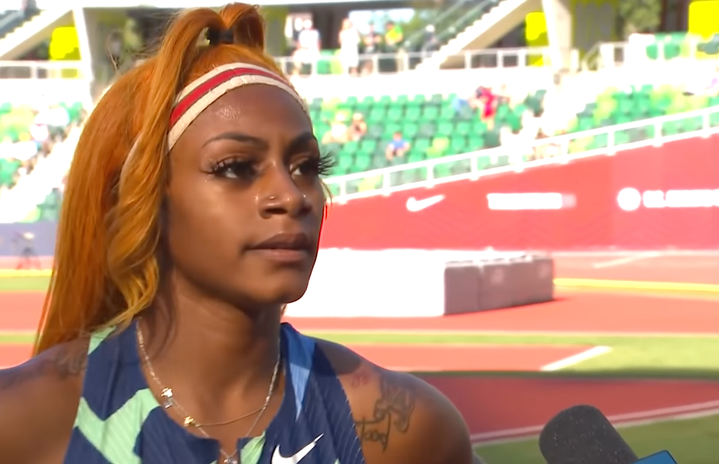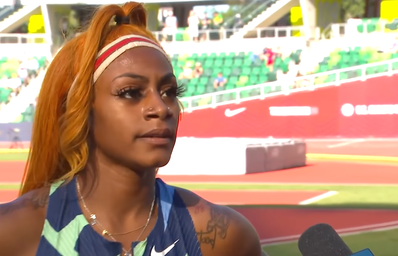America’s fastest woman, Sha’Carri Richardson, rose to fame in 2019 after running for 10.75 seconds to break the 100-meter record at the National Collegiate Athletic Association (NCAA) Championships at only 19 years of age.
However, on July 2 reports were released stating that the U.S. track star has been suspended from the Olympic team after testing positive for THC.
The announcement has since sparked public outrage about punishing a successful athlete for the use of a medicinal substance that is legalized in 19 states, including Oregon — the state where she resided when the marijuana was consumed.
Revealing the pain of her mother’s recent death, Richardson explained that the intense pain she felt while grieving before the trials brought her to seek emotional relief in the legalized substance.
“To put on a face and to have to go on in front of the world and hide my pain … Who am I to tell you how to cope? Who am I to tell you that you’re wrong for hurting.”
Richardson’s blatant honesty and accountability have made the widespread support of her case even more justified. When she appeared on NBC’s TODAY Show, she said:
“I just want to take responsibility for my actions, I know what I did, I know what I’m supposed to do, I’m allowed not to do and I still made that decision. I’m not making an excuse or looking for any empathy in my case.”
The night before the reports officially dropped, Richardson tweeted simply:
“I am human.”
This small phrase has become a statement piece for the conflict. Here, she reminds us that athletes deserve the same compassion as any other individual, especially when enduring such life-changing grief.
Millions are taking to social media in support of Richardson, calling the World Anti-Doping Agency (WADA) out for its outdated stance on the use of marijuana. Massive athletic figures such as Dwayne Wade, Ricky Williams, and Isaiah Thomas took to Twitter to defend her.
Joe Thomas, a retired football player for the Cleveland Browns called out WADA for criminalizing a drug with absolutely no performance enhancement properties, stating in a tweet:
“Wait… the Olympics is testing for performance diminishers now? Seems like a poor use of resources”
This controversy, along with many others in the past year, not only reveals that the rules are painfully outdated but calls into question our perception of athletic figures in the media. The public outrage surrounding this case is a symptom of a system desperate for modern revision. It’s not until those in power are able to put themselves in the shoes of others – even those glorified for their athletic prosperity — will we see meaningful change.
We applaud them for their championship-winning performances, and we idolize them for their endurance and success in their field. Although these are all accomplishments that are deservingly celebrated, defining athletes by their numbers gives us permission to dismiss their humanity.
As our country’s justice system evolves its laws to fit with the modern worldview, its time that associations like WADA catch up. We need to look at Sha’Carri Richardson not only as a record-breaking track star but as the grieving young adult that she deserves to be recognized as.


